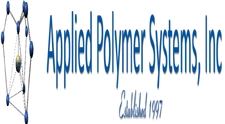

Applied Polymer Systems (APS) uses an innovative approach for the performance optimization of polymer applications. Unlike conventional techniques that tend to only "get close", APS precisely matches the correct polymer to the desired application. Results are increased performance and reduced cost.
The APS approach has been proven within numerous mining and construction properties within the United States and Canada since 1993 and has led to significant increases in performance and cost reduction. APS was instrumental in securing two U.S. Patents in Water Treatment and Acid Rock Drainage applications. The APS approach has been reviewed and commended by Sr. Environment Scientists within government and private industry.
APS optimizes existing or new processes, operational or environmental processes and applications increasing their efficiency and lowering their cost. Recent knowledge and polymer product advances have undergone dramatic changes within the last seven years. APS is capable of achieving significant improvement in industrial applications. Few consulting firms are aware of the enhanced performances and cost savings that can be realized using these new technological applications.
Laboratory testing and research using over 1100 polymer research papers from agriculture, medical, mining, petroleum, and food processing fields have led to the formation of APS. The result is a precise characterization of the mass-to-charge ratio of the polymer analogous to the specific lithology and chemistry of the target particles of the various substrates. This precise characterization allows for the formation of insoluble chelates resulting in greater particle stabilization which can be easily manipulated in regard to the specific polymer application processes.
Increases In the Performance of Drilling Fluids & Erosion Control Applications Equal Decreases In Cost
Every business - regardless of what industry it falls within - faces cost issues. One of the most highly regarded ways of decreasing financial burdens is to increase performance. That's why Applied Polymer Systems (APS) has forged advancements in the areas of flocculants, drilling fluids and erosion control applications in order to dramatically improve water treatment solutions while saving money.
Flocculants:
Significant performance increases and cost savings can be realized in most flocculent applications. Water treatment systems, thickener tanks, and settling pond performances show greater settling rates with less retention time requirements. Sludge and particle stability during water treatment processes are greatly enhanced due to the formation of more massive insoluble chelates. In many cases, the dosage of polymer may be reduced with increased performance observed within the various applications, once the APS characterization has been completed.
Drilling Fluids:
The application of most drilling fluids receives much less attention to performance enhancement than flocculants. Polymer drilling fluids are almost exclusively purchased through a drilling fluid vendor. Most vendors have little knowledge of optimization and characterization specifics beyond their product specifications. At mining operations in Alaska, the cost of drilling fluids was reduced in excess of 75% by using the APS method. Significant decreases were seen in the concentration of drilling fluids due to the APS characterization of polymer to drill cuttings characteristics.
Erosion Control:
APS's precise characterization of polymer to soil type greatly enhances the in-situ flocculation with polymer application that results in longer times between erosion control applications. A common problem within the agriculture industry is that one polymer type is usually used on significantly different soil types. This normally produces the result of one area of erosion control application working acceptably and another area of application working poorly. Mining and construction site applications have shown excellent results in erosion control with greater than 98% TSS reduction. This can also be combined with a metal complexing polymer to reduce dissolved metal values along with TSS reduction.
ARD Application:
APS uses a novel approach to mitigate acid rock drainage by using specifically tailored polymers, in combination with finely ground dolomite or lime stone to mitigate acidic conditions. In-situ applications have proven cost effective with favorable results lasting for a minimum of two years.
Dissolved Metal Control:
APS uses metal absorbing polymers to control environmentally problematic metal values in storm water runoff, mine closures and reclamation operations, and construction sites. In-situ applications have demonstrated greater than 95% reduction of some cationic metal values with 50-75% being typical for most metals. The metal complexation formation produces an extremely stable chelate that has been shown to withstand very low pH conditions.
Dust Control:
APS uses the particle stabilization properties as outlined in the in-situ application in combination with contemporary acrylic coatings. The fine target material is first flocculated together to produce larger agglomerated particles. These larger agglomerated particles produce larger pore spaces that enable greater penetration of the acrylic polymers. This method of application produces a greater weathering property and longer lasting coating by allowing greater depth penetration into the target material. Super absorber cross-linked PAMs are also used on road and traffic areas to reduce watering requirements.
| Company Name | Applied Polymer Systems, Inc |
| Business Category | Energy |
| Address | 519 Industrial Drive Woodstock, Georgia United States ZIP: GA 30189 |
| President | NA |
| Year Established | 1997 |
| Employees | NA |
| Memberships | NA |
| Hours of Operation | NA |
| Phone Number | Locked content | Subscribe to view |
| Fax Number | Locked content | |
| Locked content | ||
| Website | Locked content |